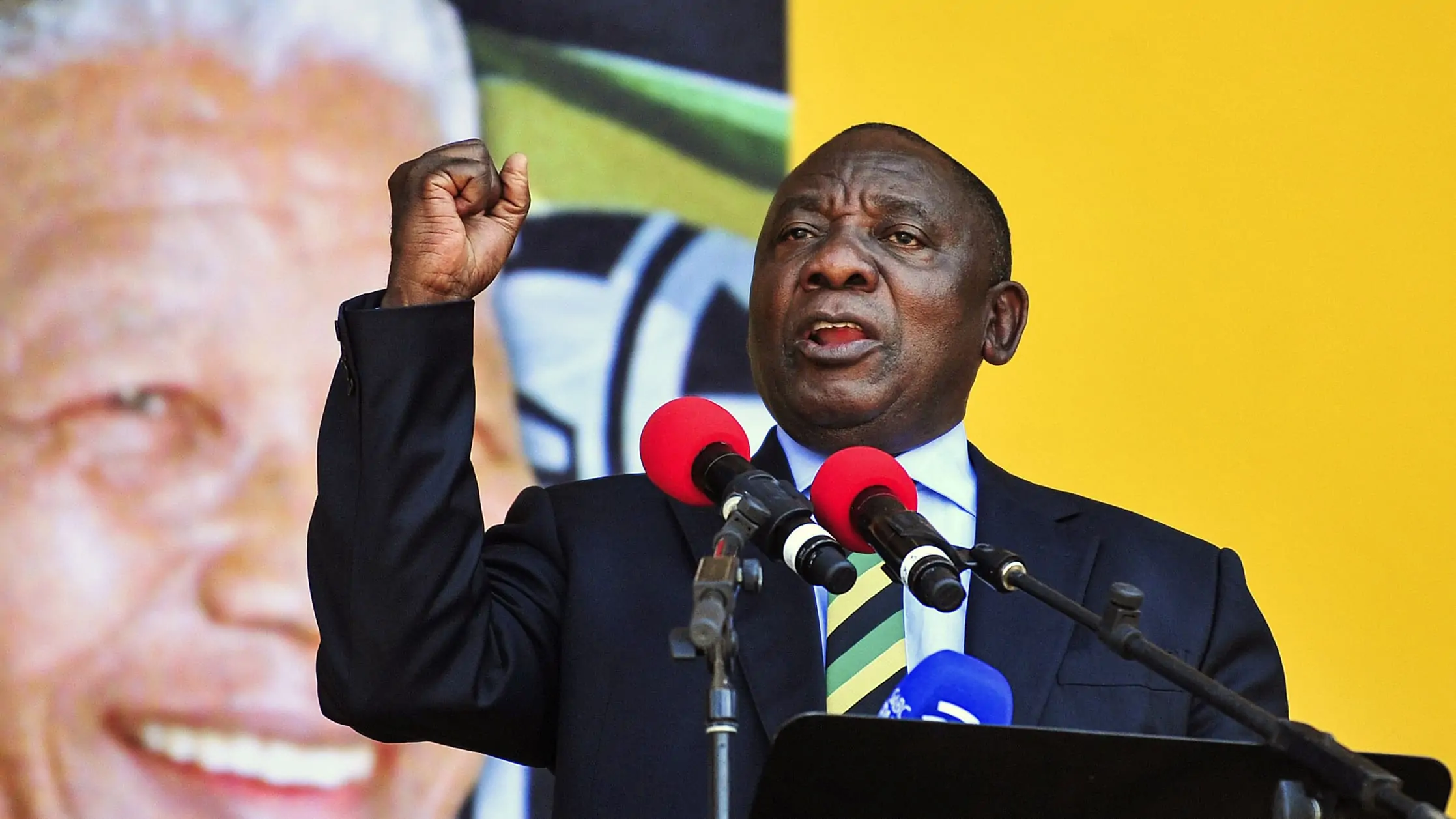
Cyril Ramaphosa seen delivering a speech Sunday at the Grand Parade in Cape Town, South Africa, before he was elected president.
In his recent weekly newsletter to the nation, President Cyril Ramaphosa highlighted significant strides in the ongoing process of reforming and professionalizing South Africa’s public service. These developments not only serve to enhance the efficiency and accountability of the public sector but also align with the recommendations put forth by the State Capture Commission.
President Ramaphosa underscored the passage of two crucial pieces of legislation by the National Assembly. The Public Administration Management Amendment Bill and the Public Service Amendment Bill aim to bolster the functioning of the public service, fortify accountability mechanisms, and streamline operations. These bills, having cleared the National Assembly, are now slated for consideration by the National Council of Provinces.
Additionally, the Department of Public Service and Administration unveiled a new directive aimed at providing guidance to various departments in implementing a framework for the professionalization of the public service. President Ramaphosa emphasized the significance of these reforms in ensuring the appointment of competent individuals to key positions within the public service. Notably, the directive mandates the completion of the Nyukela pre-entry program, offered by the National School of Government, as a prerequisite for senior management appointments. This program, spanning approximately 120 hours, imparts essential knowledge and fosters values integral to effective public administration.
Furthermore, the directive necessitates pre-entry assessments and ongoing training initiatives to foster continuous development among public servants. Emphasizing the importance of learning and growth throughout one’s career, President Ramaphosa proposed allocating at least 1% of departmental wage bills to training endeavors. To support this initiative, the proposed legislation seeks to elevate the National School of Government to a national department tasked with providing education and training across all government spheres.
President Ramaphosa reiterated the pivotal role of the National School of Government in conducting skills audits, particularly in infrastructure and frontline service departments. These audits, aimed at identifying critical skills gaps, provide invaluable insights for targeted capacity-building efforts. For instance, the reports underscored the need to enhance knowledge in modern engineering practices and sustainable construction methods.
In a bid to enhance inclusivity and attract young talent, the recent directive waived the requirement for work experience in entry-level positions within the public service. Instead, emphasis is placed on in-service training and support mechanisms such as coaching and mentoring. Departments are encouraged to establish graduate recruitment schemes to entice graduates into public service roles.
Moreover, President Ramaphosa emphasized the need to mitigate political interference in government administration. The proposed legislation delineates clear distinctions between the roles of elected officials and professional public servants, aiming to foster a more efficient and impartial public service. Provisions are included to prevent public servants from holding political office and to facilitate the transfer of personnel between government levels to address skills shortages.
In the ongoing battle against corruption, President Ramaphosa outlined measures aimed at enhancing accountability and transparency. Prohibitions on post-government employment within service provider entities, coupled with the establishment of a central register for disciplinary cases, underscore the government’s commitment to rooting out corruption and ensuring integrity within the public service.
President Ramaphosa concluded by emphasizing that these reforms are integral to building a more effective and accountable state. By empowering public servants and enhancing operational efficiency, South Africa is poised to realize its vision of a capable developmental state that serves the needs of all its citizens.
This website uses cookies.